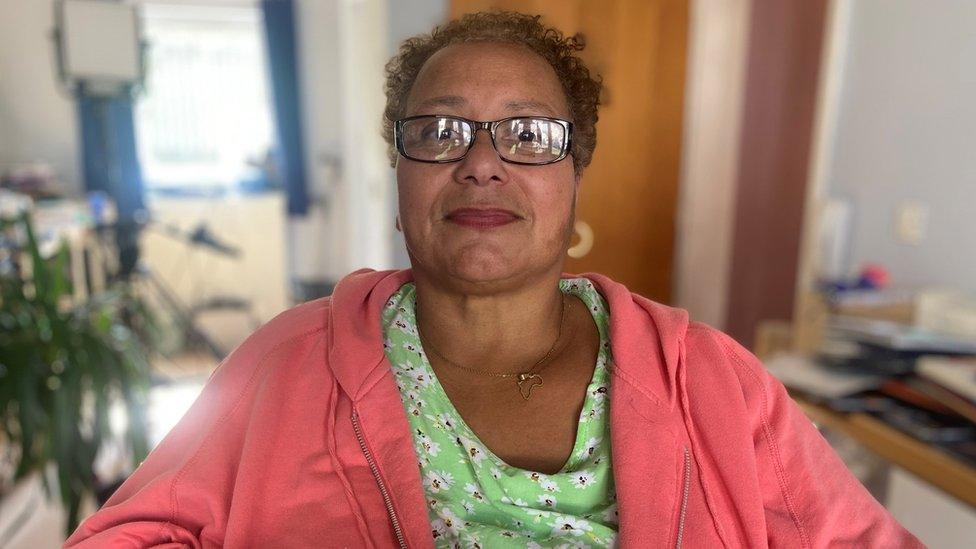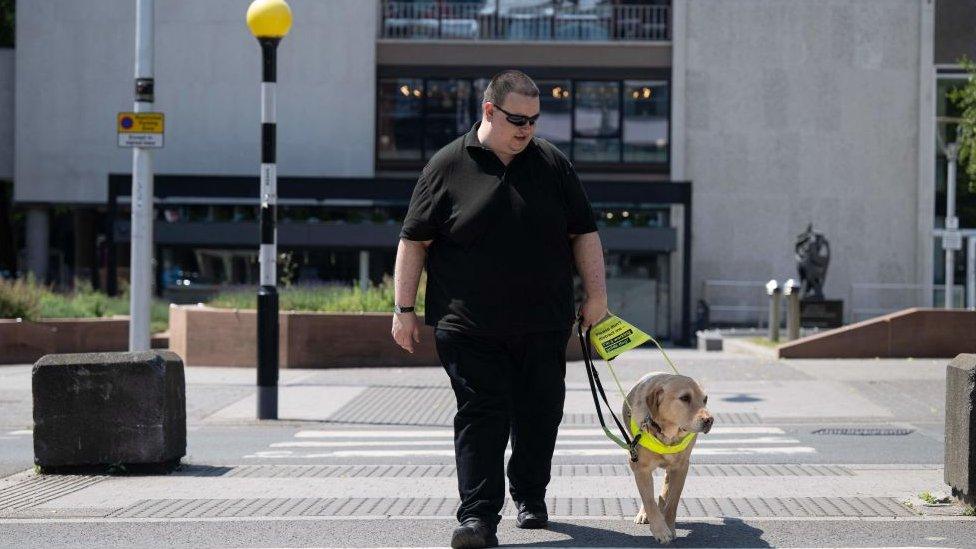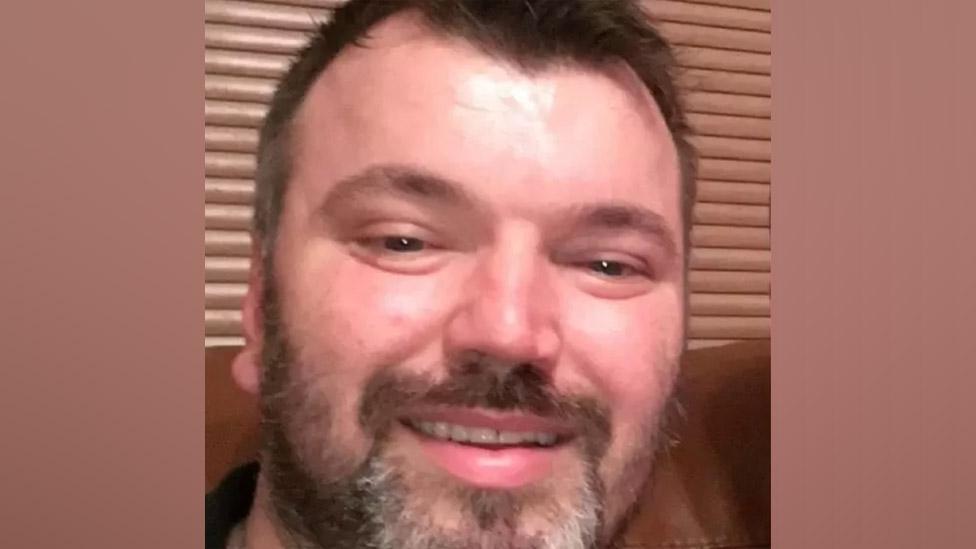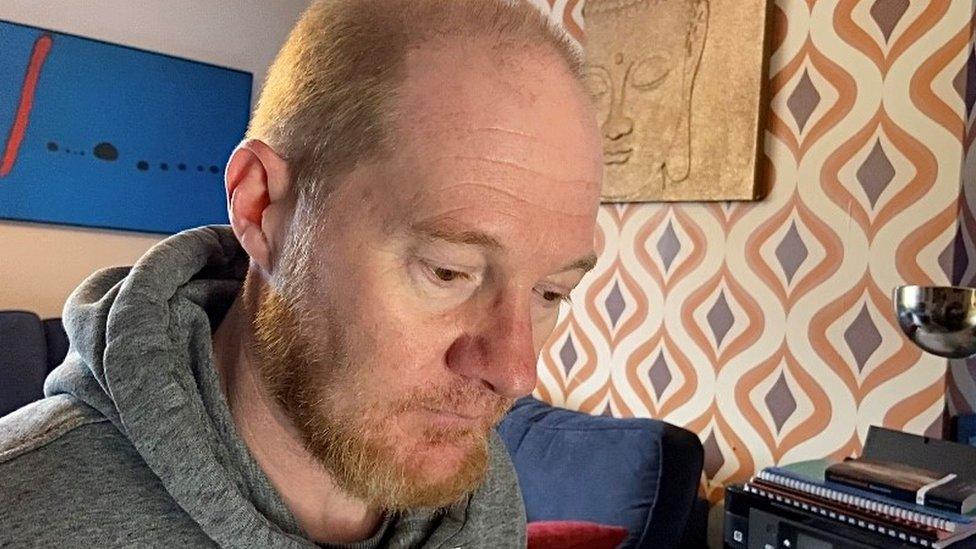Disabled people choosing between 'eating and breathing'
- Published

Paula Fummey says her bills have gone through the roof
Disabled people in Scotland are being forced to choose between heating and breathing, according to campaigners.
A recent report by Scottish Independent Living Coalition (SILC) warns of "unrelenting attacks" on the rights of disabled Scots.
One wheelchair user told BBC Scotland News that costs to use her medical equipment had "gone through the roof".
Both the UK and Scottish governments say they are committed to improving the lives of disabled people.
The SILC report warns of the increasing cost of living concerns facing disabled Scots, with some forced to make "stark choices" on whether and how often to use medical equipment and assistive technologies, choices like picking between being able to afford food or electricity to run necessarily medical equipment.
It says some are making the choice between "eating and breathing, putting their health at risk with the inevitable consequence of being forced to go into hospital or residential care".
SILC produced the report on behalf of the Scottish Human Rights Commission (SHRC).
SHRC chief executive Jan Savage told BBC Radio's Good Morning Scotland programme the decision for disabled people between using medical equipment, that in some cases "help them literally to breathe", or eating nutritious food is not a choice they should have to think about.
The commission will meet in Geneva on Monday to discuss the new reports, including an 84-page evidence paper from the United Kingdom Independent Mechanism, made up of human rights organisations across the UK.
Paula Fummey, from Castlemilk in Glasgow, is a wheelchair user and a member of the Glasgow Disability Alliance. She says that despite rising electricity costs, she relies on six pieces of medical equipment to "survive".
Speaking on BBC Radio's Good Morning Scotland programme, she said: "It's really important that I have those for my independence but you do think about it when you are plugging them in each day.
"If I didn't use my wheelchair I'd be stuck in my bed all day, I use that to get out and about, if I didn't have that I would go doo lally, I don't know what I would do with myself."
She also uses an electric hospital bed and a tracker hoist to help her day-to-day.
It's not just electricity costs, Ms Fummey has struggled with. She opted to wrap herself in a duvet to keep warm last winter, rather than turning on the heating.
"I would rather charge my wheelchair so I can get out and about and I can put layers on if I get cold," she said.
Not a choice
Living costs have also had an impact on Ms Fummey's ability to socialise. One outing to see her brother, a comedian, perform cost her £55 in taxi fares alone.
"Unless I can get there in my chair, I tend not to go places because it's far too expensive," she added.
"You've got to think twice about doing these things, because you just don't have the disposable income to do that anymore."
A UK government spokesperson said it was committed to making society a more "inclusive and accessible place for all disabled people," through measures such as reforming the health and disability benefits system.
A representative from the Scottish government said it was doing everything possible within its "powers and fixed budgets" to ensure people were supported through the cost of living crisis.
Related topics
- Published17 August 2023

- Published21 November 2022

- Published10 October 2022
